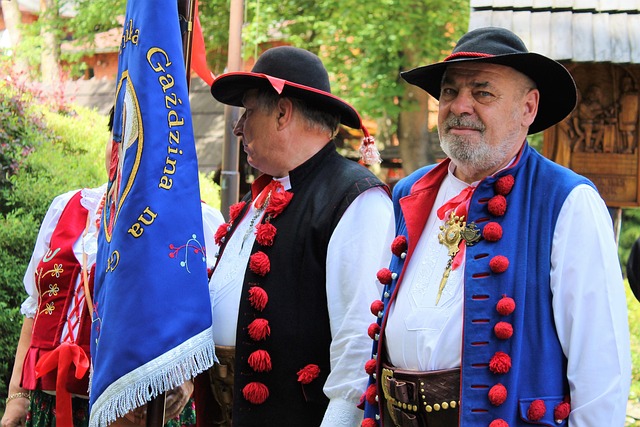In Oregon, grandparent visitation rights are governed by state laws aiming to balance children's and parents' interests. Grandparents must establish legal parenthood through documents like birth or adoption records. The court considers factors such as the grandparent-grandchild relationship, parental consent, and impact on the child's routine when deciding on visitation. Open communication and structured visitations between grandparents, parents, and grandchildren are vital for maintaining strong relationships and navigating legal complexities around Oregon family visitation.
In Oregon, grandparents seeking visitation rights face distinct legal considerations. This comprehensive guide navigates Oregon’s grandparent visitation laws, focusing on establishing legal parenthood and securing visitation privileges. Learn the necessary steps to file for rights, common challenges, and strategies to maintain strong post-visitation relationships. By understanding these aspects, folks in Oregon can foster meaningful family connections through effective navigation of the legal landscape surrounding family visitation.
- Understanding Oregon's Grandparent Visitation Laws
- Establishing Legal Parenthood and Grandparent Status
- Filing for Visitation Rights: Necessary Steps
- Common Challenges and How to Overcome Them
- Maintaining a Strong Relationship Post-Visitation
Understanding Oregon's Grandparent Visitation Laws

In Oregon, grandparent visitation rights are governed by state laws designed to balance the interests of both children and parents. According to Oregon Revised Statutes, grandparents have a legitimate interest in visiting with their grandchildren, subject to the consent of the parents or legal guardians. The law recognizes that regular contact between grandparents and grandchildren can be beneficial for the child’s emotional well-being and overall development.
Oregon family visitation laws provide specific guidelines for grandparent visitation, including the right to seek court-ordered visitation if parental consent is denied unreasonably. The court will consider various factors when determining what type of visitation is in the best interest of the child, such as the relationship between the grandparent and grandchild, the parent’s willingness to facilitate visitation, and any potential impact on the child’s routine and stability. Understanding these laws is crucial for grandparents seeking visitation rights in Oregon.
Establishing Legal Parenthood and Grandparent Status

In Oregon, establishing legal parenthood is a crucial step for grandparents seeking visitation rights. To have standing to file for grandparent visitation, one must first prove their relationship to the child. This can be done through birth records, adoption papers, or other legal documents that establish parental relationships. It’s important to note that not all grandparent-child relationships are automatically entitled to visitation; Oregon family law balances the rights of parents with those of grandparents.
Grandparent status alone does not guarantee visitation rights. To secure these rights, grandparents must demonstrate a significant relationship with the child and show that their involvement is in the best interest of the child’s welfare. This process often involves filing a petition with the court, presenting evidence of their parental bond, and arguing for regular or specific visitation schedules. Oregon family visitation laws are designed to ensure fairness while recognizing both parents’ and grandparents’ roles in a child’s life.
Filing for Visitation Rights: Necessary Steps

To secure visitation rights as grandparents in Oregon, the first step is to file a petition with the court. This typically involves completing and submitting a Petition for Grandparent’s Rights or a Motion to Modify Custody, depending on the specific circumstances. It’s crucial to include relevant information such as the child’s full name, parents’ names, your relationship to the child, and the proposed visitation schedule. You’ll also need to provide proof of your parental relationship and any existing contact with the child.
Once the petition is filed, the court will issue a hearing date, at which both parties—grandparents and legal guardians—can present their cases. It’s important to gather supporting documentation, such as character references or evidence of a positive relationship with the child. During the hearing, a judge will consider factors like the child’s best interests, the quality of the grandparent-child relationship, and any history of involvement in the child’s life. If the court rules in your favor, it will establish a visitation schedule tailored to the specific needs and routines of both the family and the grandparents.
Common Challenges and How to Overcome Them

Grandparents in Oregon often face challenges when seeking visitation rights, especially if they live outside the household or if there are ongoing custody disputes. Common hurdles include limited access to the child, disagreements between parents, and legal complexities. To overcome these obstacles, it’s crucial for grandparents to establish open communication with both parents, fostering a collaborative environment. This might involve scheduling regular visits, creating structured routines, and ensuring consistent care.
Legally, Oregon has specific guidelines for family visitation, which can be navigated by consulting with an experienced attorney. They can help craft a parenting plan that prioritizes the best interests of the child while recognizing the significant role grandparents play in their lives. Additionally, grandparents can build support through community connections, such as local grandparent support groups or legal aid organizations specializing in family law, to guide them through the process and advocate for their rights to meaningful visitation in Oregon family visitation scenarios.
Maintaining a Strong Relationship Post-Visitation

After establishing visitation rights, it’s crucial to maintain a strong and positive relationship with your grandchildren. Consistent and meaningful interactions are vital to ensuring ongoing access. Grandparents in Oregon should focus on regular communication, whether through visits, phone calls, or video chats, to stay involved in their grandchild’s life.
Building a robust bond post-visitation involves showing genuine interest in the child’s hobbies, school activities, and daily routines. Documenting special moments together through photos or journaling can create lasting memories. Remember that open dialogue with parents is essential; respecting their boundaries while expressing your desire to be an active part of your grandchild’s life fosters a healthy environment for continued visitation rights.
